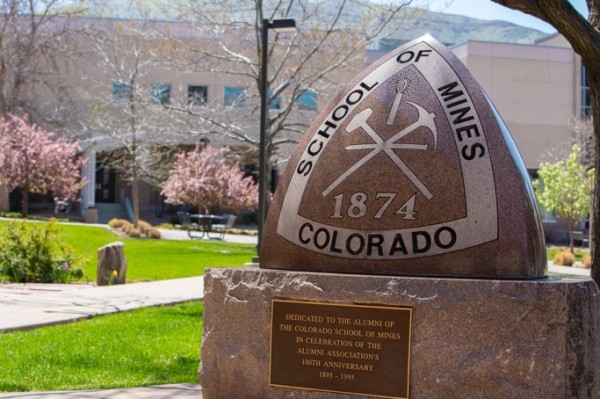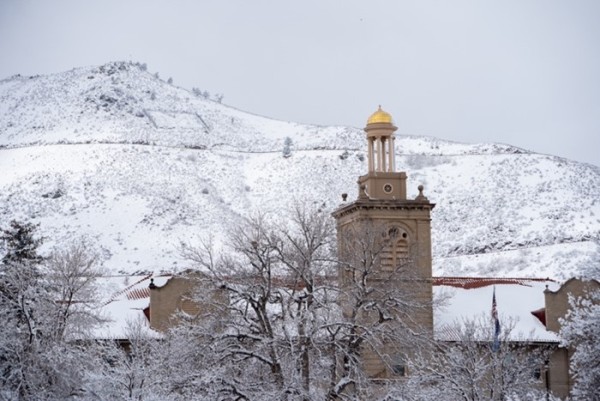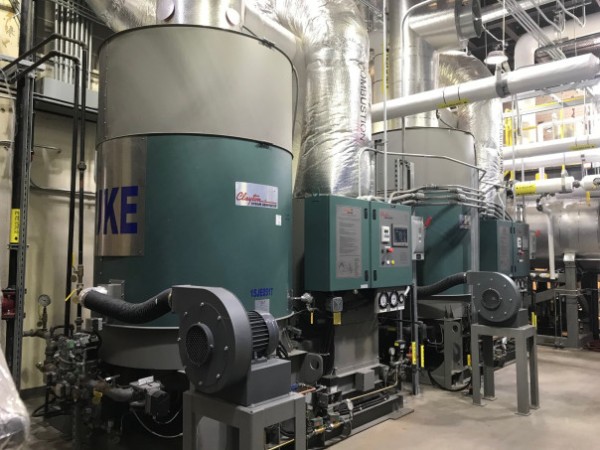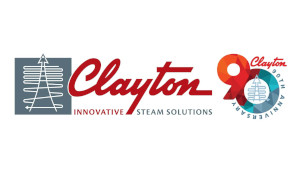Los Angeles, CA, USA – May 31, 2022 – In recent years, Colorado School of Mines (known as Mines) had been purchasing excess steam from the nearby Coors Brewing Company facility to heat their campus. A series of vaults with pipe conduits were built connecting the Coors’ plant to the campus buildings to divert their surplus steam. This arrangement was advantageous to both facilities. Over time, however, the pipe conduits became worn and needed replacing. Mines was faced with a decision: repair the vault infrastructure or invest in a new boiler room. Despite the higher initial cost, it became clear that reinstating their own plant would be more economical overtime. They had been paying Coors approximately $13/1000 Ibs for their steam, whereas the school could produce steam for $7/1000 Ibs by installing two steam generators from Clayton Industries, thus realizing a savings of 38% on their annual energy costs.

(Caption: Colorado School of Mines Campus)
The Colorado School of Mines, a public research university focused on environmental science and engineering in Golden, Colorado, had been utilizing steam to heat their campus for a majority of the time, since their inception in 1874.
Yet in recent years, the school had not been using steam from their own boiler room. Instead, they were purchasing steam from the Coors Brewing Company facility down the road. The equation was simple: the Colorado School needed steam, and the Coors facility was creating excess steam. By building a series of vaults with pipe conduits connecting the Coors’ plant to the campus buildings, they could divert their surplus steam to the school – allowing the campus to relinquish their boiler room duties, and Coors to get some extra cash.
It was a symbiotic relationship, while it lasted.
Over time, the pipe conduits within the vaults began to show their age, becoming worn. By April 2015, the wear was sufficient that Colorado School was faced with a decision: put in the money to repair the vault infrastructure or invest in a new boiler room. Despite the higher initial cost, it became clear that reinstating their own plant would be more economical overtime. They had been paying Coors approximately $13/1000 Ibs for their steam, whereas the school could produce steam for $7/1000 Ibs.
The limits of conventional boilers, and the need for supplemental support.
With Colorado’s notoriously cold winters and the school’s sizeable student body, it was clear that Colorado School was going to need conventional boilers to handle the 70,000 pounds per hour (pph) peak loads during the winter months. This is why Legacy Mechanical, the mechanical contractor overseeing the job, obtained two 50k pph conventional steam boilers.


(Caption: With Colorado’s notoriously cold winters and the school’s sizeable student body, it was clear that Colorado School was going to need conventional boilers to handle the 70,000 pounds per hour (pph) peak loads during the winter months.)
The problem is that these boilers comprise large tanks of water, all of which needs to be heated to make any amount of steam.
Fluctuating loads and energy savings
RMH group, the design engineering company working on the project, knew of Clayton Industries’ generators and were confident that the Clayton equipment would be able to pick up the slack from the conventional boilers.
Legacy Mechanical purchased two SEOG204‐1‐FGR steam generators and condensate receiver (CR) feedwater skid package. The plan was to integrate a master lead lag system for the Clayton 200 BHP low NOx steam generators into the boiler plant control master. They would use the two water tube boilers for the base winter loads, and the Clayton generators to handle fluctuations on-demand, as well as the summer loads.
Clayton generators are not like conventional boilers, in that they are not like tea kettles. You don’t have to heat the entire kettle. Instead of heating tanks full of water, these generators create steam by pumping a small amount of water through a coil tube. By using such a low quantity of water, the generators require less energy to operate, and are better able to modulate their steam output to match changing load profiles. One result? Instantaneous, energy-efficient hot showers for all.

(Caption: Two Clayton steam generators and horizontal condensate receiver skid (in background)
Colorado School of Mines is already in talks about a third generator– so they can continue to deliver that reliable, on-demand heat to their faculty and student body as they expand their campus.
About Colorado School of Mines:
Founded in 1874, the Colorado School of Mines is a public research university focused on science and engineering, where students and faculty together address the great challenges society faces today—particularly those related to the Earth, energy and the environment. The school, known colloquially as “Mines”, offers both undergraduate and graduate degrees in engineering, science, and mathematics, and minor degrees in the humanities, arts and social sciences. The Mining Engineering Department at Mines was ranked No. 1 in the 2021 QS World University Rankings by Subject, released in May for 51 different academic disciplines and fields – a ranking the school has held consecutively since 2016.
For more information, visit https://www.mines.edu/.
About Clayton Industries:
Clayton Industries is a leading global manufacturer of industrial steam boilers and industrial process steam generation products. The process steam boilers include fired boilers and unfired waste heat boilers. Clayton’s unique controlled circulation counter-flow design offers many operational advantages and benefits over other industrial steam boilers. Its control systems are built with the latest technology. Clayton also provides customers with reliable and highly efficient, compact steam-generating systems, mobile steam generators, and steam. The company’s design principles make it a favorite choice in today’s high-efficiency energy markets. Clayton is headquartered in City of Industry, California, USA. It serves diverse worldwide markets from its industrial steam boiler manufacturing facilities in the United States, Belgium, and Mexico. Direct Sales and Service support centers are also located worldwide.
For more information, visit www.claytonindustries.com.
Press & Media Contact:
Gina DiMassa
Brand Orbit
+1 626-791-7954
ginadc@brandorbit.com
Media Contact
Company Name: Clayton Industries
Contact Person: Gina DiMassa
Email: Send Email
Phone: +1 626-791-7954
Address:17477 Hurley Street
City: City of Industry
State: CA 91744
Country: United States
Website: www.claytonindustries.com

